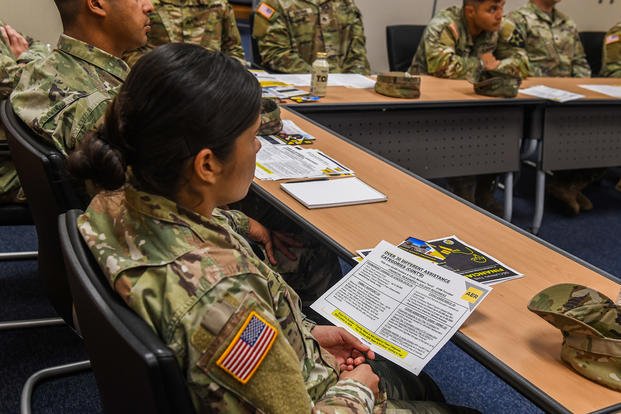Army Emergency Relief, the primary nonprofit supporting soldiers and their families, announced this month a new policy designed to aid victims of domestic violence.
The new AER policy streamlines access to emergency grants for critical needs — such as temporary shelter, food and other essentials — to help victims safely leave abusive households.
Tony Grinston, the former sergeant major of the Army who now oversees AER, said the policy is designed to “financially support soldiers and Army family members experiencing domestic violence.” The move, Grinston noted, is part of a broader push to ensure that service members and their families have fast, reliable access to resources when facing critical personal crises.
Read Next: The Rise of Soldier-Influencers: Army Eyes Policy for Troops with Millions of Online Followers
AER can now provide immediate financial aid to abuse victims without requiring notification of the chain of command or law enforcement — a significant shift from previous rules that granted assistance only to victims with formal reports certified by commanders or police. This change aims to remove barriers for those in urgent need, offering more discreet support.
The nonprofit gives out roughly $55 million each year in no-interest loans and grants to soldiers and their families for many reasons, in addition to about $13 million in scholarships. It has become especially critical this year as troops have been hit hard with a series of hurricanes and other powerful storms, events that are expected to become more frequent and severe due to climate change.
Now, instead of requiring validation from command or law enforcement to verify an abuse victim’s claims — a hurdle that previously opened up access to assistance — that responsibility has shifted to the Family Advocacy Program.
That change cuts through layers of bureaucracy that may have discouraged victims from seeking help in the past, enabling spouses to speak confidentially with staff outside of their abuser’s immediate network.
Between 2019 and 2021, the Army saw 1,962 incidents of reported domestic violence, according to data from the Project on Government Oversight, but the nonpartisan watchdog noted it’s likely those incidents are heavily underreported.
Only about half of military spouses are employed, one-third of whom work part time. Compared to other demographics, military spouses are uniquely disadvantaged when it comes to establishing careers, due to the constant unpredictability of their partner’s military lifestyle.
Because of that, it can be difficult for spouses who are victims of abuse to leave violent households.
Grinston took the helm at AER earlier this year after serving as the sergeant major of the Army during some of the more turbulent times for the force, including the COVID-19 pandemic; response to the Jan. 6, 2021, insurrection; and the transition to the new physical fitness test, which required significant buy-in from top brass and the rank and file.
The focus of his tenure was quality-of-life issues for soldiers and families.
Related: Army’s Former Top Enlisted Leader Takes Helm at Nonprofit Aimed at Helping Soldiers in Need
Story Continues
Read the full article here

